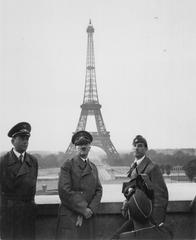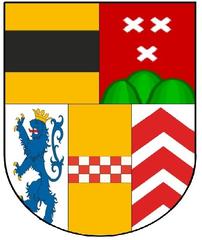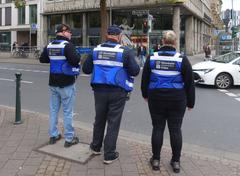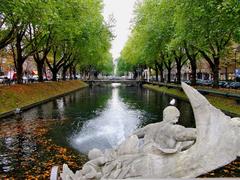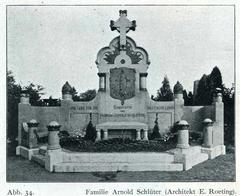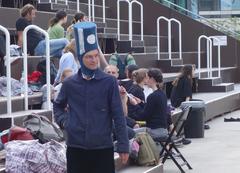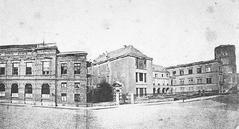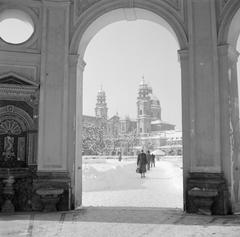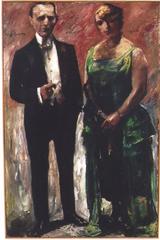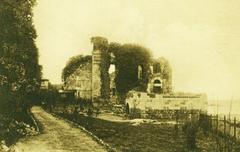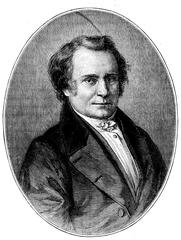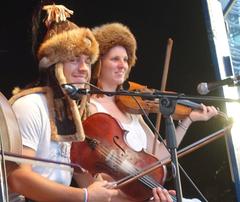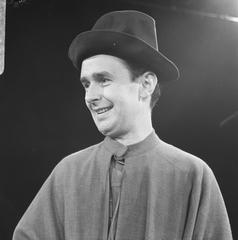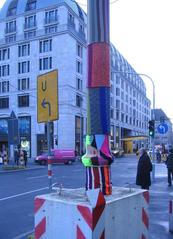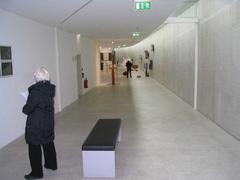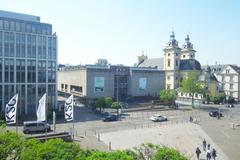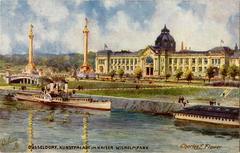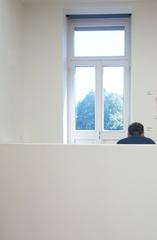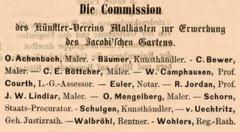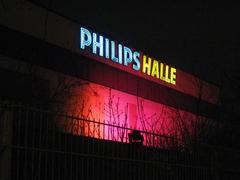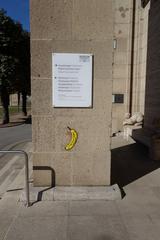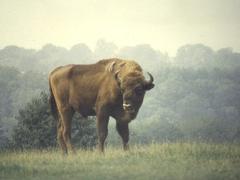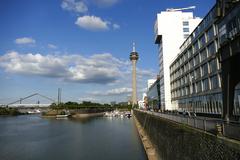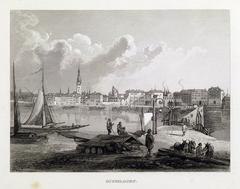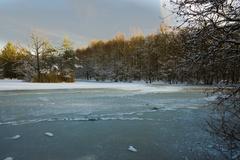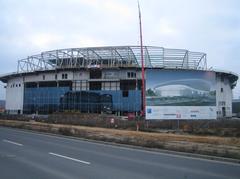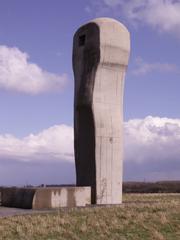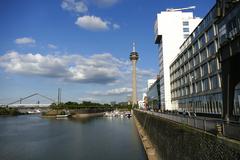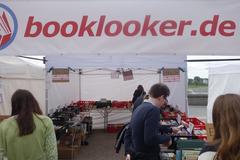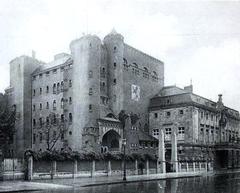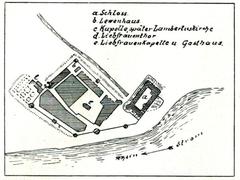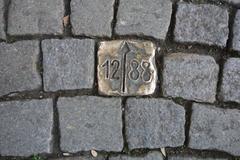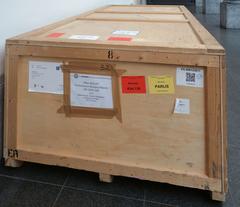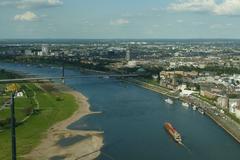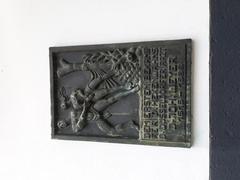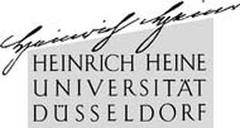
Filmmuseum Düsseldorf Visiting Hours, Tickets, and Guide to Düsseldorf Historical Sites
Date: 04/07/2025
Introduction to Filmmuseum Düsseldorf and Its Significance
Situated in the lively Altstadt (Old Town) of Düsseldorf, the Filmmuseum Düsseldorf is a cultural landmark for film lovers and history enthusiasts alike. Since its foundation in 1979 and relocation to its current site in 1993, the museum has been pivotal in preserving Germany’s cinematic legacy. It offers a comprehensive journey through the history of film, from early moving images to the latest digital innovations. The museum’s central location at Schulstraße 4 ensures easy access, placing visitors within walking distance of major city attractions and public transport hubs like Düsseldorf Hauptbahnhof (Filmmuseum Düsseldorf Official Site; Visit Düsseldorf).
The Filmmuseum Düsseldorf is renowned for its extensive collections, which include vintage cameras, original film memorabilia, interactive exhibits, and the celebrated Black Box cinema. The Black Box is a unique in-house theater that regularly screens classic and contemporary films—often featuring live accompaniment on one of the world’s few remaining operational Welte cinema organs. The museum also excels in accessibility, offering wheelchair-friendly facilities, multilingual tours, and a variety of ticketing options. Special exhibitions and events, such as the acclaimed “Nosferatu Revisited,” further enrich the visitor experience, making the museum a dynamic center of education, preservation, and cinematic celebration (Stummfilm Magazin; MuseumRun).
Contents Overview
- Introduction
- Historical Context and Significance
- Museum Origins
- Cinema in Düsseldorf and Germany
- Visitor Information
- Opening Hours
- Ticketing
- Accessibility
- Directions
- Nearby Attractions
- Special Events and Guided Tours
- Museum Layout and Collections
- The Black Box Cinema
- Digital Initiatives
- Symbolic Artifacts
- Role in Düsseldorf’s Cultural Scene
- Visuals and Interactive Features
- Highlight: Nosferatu Revisited Exhibition
- Visitor Tips & FAQ
- Conclusion and Recommendations
- Sources
Historical Context and Significance
Museum Origins
The Filmmuseum Düsseldorf was officially inaugurated in 1993, stemming from a vision to create a dedicated space for documenting and exploring film as both art and cultural history. Its establishment aligned with a broader movement in Germany to protect and promote media heritage, amplifying Düsseldorf’s reputation as a hub for the arts. The museum functions as an archive, educational institution, and exhibition space—all integral to fostering a deeper understanding of cinema’s impact (Gallery Systems).
Cinema in Düsseldorf and Germany
While Düsseldorf may not rival Berlin or Munich in film production scale, its creative influence is substantial. The museum’s collections span:
- Weimar Republic: Marked by cinematic innovation and expressionism.
- Nazi Era: Characterized by propaganda and technical advancements.
- Post-war Division: Fragmented development in East and West Germany, with Düsseldorf fostering artistic experimentation.
- Reunification to Present: Revival of interest in German cinematic heritage and new creative voices.
The museum contextualizes these eras, offering rich insights into how cinema mirrors and shapes German society.
Visitor Information
Opening Hours
- Tuesday – Sunday: 11:00 AM – 6:00 PM
- Closed Mondays and Public Holidays
- Special events may affect opening times. Always consult the official website for up-to-date hours.
Ticketing
- Adults: €6
- Reduced (students, seniors, groups): €4
- Children under 12: Free
- Special Offers: The DüsseldorfCard grants discounted or free museum entry and unlimited public transport.
- Purchase: Tickets available onsite or online via the official site.
Accessibility
The museum is fully wheelchair accessible, with ramps, elevators, and accessible restrooms. Staff are available to assist visitors with special needs.
Directions
- Public Transport: U-Bahn (Heinrich-Heine-Allee, Benrather Straße), trams 706/707, and several bus routes.
- By Car: Limited street parking; nearby garages include Carlsplatz and Altstadt.
- On Foot/Bike: The Altstadt is pedestrian- and bike-friendly.
Nearby Attractions
- Hetjens Museum: Ceramics
- Kunstsammlung Nordrhein-Westfalen: Modern art
- Museum Kunstpalast: Diverse art
- Altstadt: Historic district, dining, and nightlife
Special Events, Guided Tours, and Photographic Opportunities
- Guided Tours: Offered regularly in German and English; advance booking recommended.
- Special Events: Silent film nights (with live music), retrospectives, Q&A sessions, and film festivals.
- Photography: Permitted (non-flash), especially in interactive and historical exhibit areas.
Museum Layout and Collections
The museum covers 2,200 square meters over four floors, each focusing on a different aspect of film history (artsupp.com; kulturgehtweiter.de; thevendry.com):
- Ground Floor: Ticketing, museum shop, temporary exhibitions, cinema access.
- First Floor: Early cinema—shadow play figures, magic lanterns, camera obscura.
- Second Floor: Silent cinema—historic cameras, projectors, original scripts.
- Third Floor: Film production—interactive studio, blue box, props, and costumes.
- Fourth Floor: Animation and trick technology—stop-motion, CGI, visual effects.
- Additional: Research library, archives, event spaces (museumrun.com).
The Black Box Cinema
This in-house cinema is a cultural highlight, screening everything from silent classics (with live Welte organ accompaniment) to new releases, often with filmmaker Q&As and thematic festivals (thevendry.com).
Digital Initiatives and Collaborations
As an early adopter of the d:kult digital archive, the Filmmuseum offers digitized collections and collaborates on international projects, expanding public access to film heritage.
Symbolic Artifacts and Local Identity
Objects like the “Kom(m)ödchen” commode and original scripts from German cinema icons tie Düsseldorf’s artistic history to the broader narrative of film.
Role in Düsseldorf’s Cultural Scene
The museum plays a vital role in the city’s creative ecosystem, fostering learning, artistic innovation, and community engagement through partnerships and educational programs.
Visuals and Interactive Features
High-quality images, virtual tours, and interactive maps are available on the museum’s website, helping visitors preview exhibits before arrival.
Highlight: Nosferatu Revisited Exhibition (2025)
Overview
Launched in January 2025 to coincide with the release of Robert Eggers’ adaptation, “Nosferatu Revisited” explores the vampire myth through film clips, original artifacts, and thematic displays (Stummfilm Magazin; Filmforum Bremen).
Exhibition Features
- Film Analysis: Watch iconic scenes from Murnau’s 1922, Herzog’s 1979, and Eggers’ 2025 films in a dedicated mini-cinema.
- Artifacts: Albin Grau’s original designs, Klaus Kinski’s prosthetics, and rare memorabilia.
- Thematic Focus: Highlights the influence of black romanticism and nature mysticism.
- Events: Guided tours and a special screening of Murnau’s “Nosferatu” with live piano (January 25, 2025).
Visitor Details
- Admission: Included with regular museum entry; cinema screenings require a separate ticket.
- Accessibility: Exhibition is wheelchair accessible.
- Language: Primarily German, with some bilingual displays; English tours available by request.
Visitor Tips & FAQ
Practical Advice
- Best Times: Weekday mornings are quieter.
- Visit Duration: 1.5–2 hours; allow extra time for cinema screenings.
- Photography: Non-flash photography permitted in most areas.
- Family-Friendly: Interactive exhibits are ideal for children and school groups.
- Amenities: Lockers for bags, accessible restrooms, no café but many options nearby.
Frequently Asked Questions
Q: What are the museum’s hours?
A: Tuesday–Sunday, 11:00 AM–6:00 PM; closed Mondays.
Q: How can I buy tickets?
A: Onsite or online.
Q: Is the museum accessible?
A: Yes, fully wheelchair accessible.
Q: Are guided tours offered?
A: Yes, in German and English (advance booking advised).
Q: Can I take photos?
A: Non-flash photography is allowed except where otherwise indicated.
Conclusion and Recommendations
The Filmmuseum Düsseldorf stands out as a dynamic institution that bridges tradition and innovation in cinematic arts. Its extensive exhibitions, interactive experiences, and special events like “Nosferatu Revisited” make it an essential stop for anyone interested in film or cultural history. Strategically located in the Altstadt and complemented by excellent accessibility and visitor services, the museum offers a rewarding visit for all ages.
Visitor Recommendations:
- Plan ahead by checking current hours and exhibitions.
- Use the DüsseldorfCard for savings.
- Allow time for both permanent and special exhibitions.
- Explore nearby museums and the Altstadt for a well-rounded cultural day.
For detailed updates and event schedules, consult the official Filmmuseum Düsseldorf website and the Düsseldorf tourism portal.
Sources and Further Reading
- Visiting the Filmmuseum Düsseldorf: Hours, Tickets, and Cultural Highlights, 2025, Gallery Systems (https://www.gallerysystems.com/collective-conversations-margret-schild/)
- Visiting the Filmmuseum Düsseldorf: Hours, Tickets, Exhibitions, and Tips, 2025, Artsupp, Kulturgehtweiter, The Vendry, MuseumRun (https://artsupp.com/en/dusseldorf/museums/filmmuseum-dusseldorf)
- Visiting the Nosferatu Revisited Exhibition at Filmmuseum Düsseldorf: Tickets, Hours & Highlights, 2025, Stummfilm Magazin, Filmforum Bremen, Filmportal, Germany Travel Blog (https://www.stummfilm-magazin.de/termintipps/termin/duesseldorf-studioausstellung-nosferatu-revisited)
- Filmmuseum Düsseldorf Visiting Hours, Tickets, and Visitor Tips for Exploring Düsseldorf’s Historic Film Museum, 2025, Germany with Amy (https://germanywithamy.com/museums-in-dusseldorf-where-to-go-and-what-to-see/)
- Visit Düsseldorf Official Website (https://www.visitduesseldorf.de/en/attractions/filmmuseum-duesseldorf-1a48530a16)


